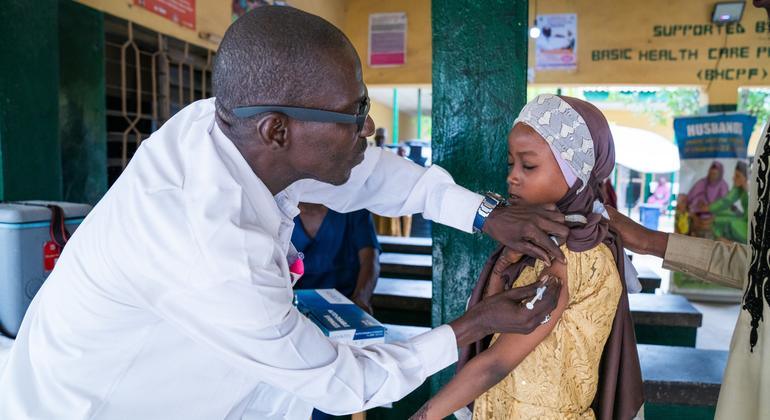Cuts to global health financing leads to an increase in outbreaks of diseases that vaccines had almost wiped out, the UN Health Agency, which warns on Thursday.
In Africa’s “Meningitis Belt”, which spans parts of sub-Saharan Africa, vaccination campaigns had successfully eliminated meningitis A. Similarly improved routine immunization and emergency vaccine stocks drastically reduced cases of yellow fever and related deaths.
But this progress is now in danger. “Funding cuts for global health have put these severely won gains at risk,” warned Tedros Adhanom Ghebreyesus, Director -General of the World Health Organization.
Outbreaks rose on the rise
By 2023, measles cases were estimated at more than 10.3 million – an increase of 20 percent compared to 2022.
There, the UN Children’s Fund Unicef and their partners warned in a statement that marked the beginning of the World Immunization Week that this upward trend is expected to continue into 2025.
Yellow fever also makes comeback. After many years of falling cases in Africa thanks to improved vaccine access, 2025 has already seen an increase in outbreaks across the continent. Cases have also been confirmed in America.
Incorrect information threat
Vaccination efforts are increasingly under pressure due to a combination of incorrect information, population growth, humanitarian crises and cuts of financing.
Earlier this month, A WHO review in 108 countries found that almost half are experiencing moderate to serious disturbances in vaccination campaignsroutine immunizations and supply chains due to falling donor support.
“The global funding crisis limits our ability to vaccinate over 15 million vulnerable children a lot to vaccinate over 15 million vulnerable children In fragile and conflict -affected countries against measles, ”said Catherine Russell, CEO of UNICEF.
Vaccines offer high returns
Vaccines save about 4.2 million lives each year and protect against 14 different diseases. Almost half of these lives are saved in Africa.
Despite this, declining investment is now risking the resumption of diseases that once believed to be under control.
Health experts emphasize that immunization is one of the most cost -effective health interventions. Each invested $ 1 in vaccines brings an estimated return of $ 54 through better health and economic productivity.
UNICEF, who and their partners encourage parents, the public and political leaders to support immunization programs and ensure long -term investments in vaccines and public health systems.



